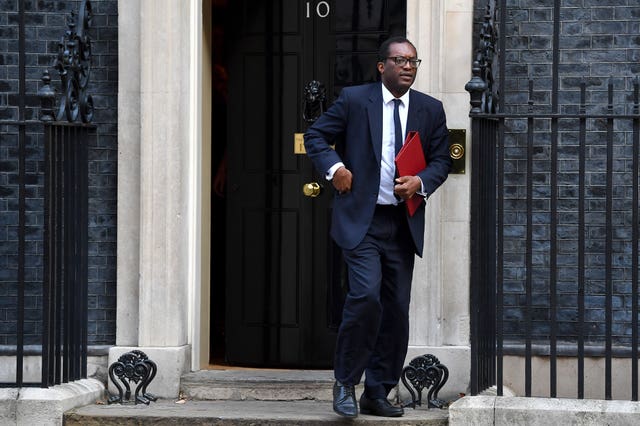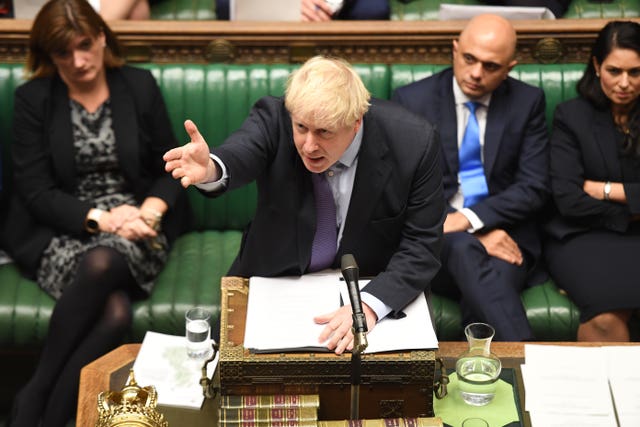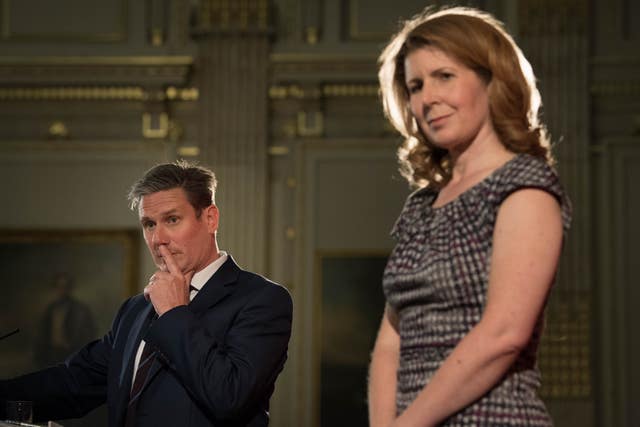A senior Government minister admitted it was “very difficult” for Britain to leave the European Union in five days’ time.
Business Minister Kwasi Kwarteng blamed Speaker John Bercow for giving “unprecedented” powers to opposition MPs, allowing them the opportunity to pass the Benn Act, which demanded Brexit be delayed if a deal had not been ratified by October 19.
“I think it will be very difficult to leave on October 31 precisely because of the Benn Act, the surrender act, which essentially gave authority to the EU about whether we will leave on October 31 or not,” Mr Kwarteng told BBC Radio 4’s Today programme.
“It looks like they may well give us an extension.”
The Tory MP, who attends Cabinet, also defended a decision to mint hundreds of thousands of commemorative 50 pence coins branded with the October 31 date. The process has since been paused.
Mr Kwarteng said: “I don’t think it looks foolish. I think it was a very sincere aim of the British Government to leave on October 31.
“I think it is sad if we don’t leave on that date. The reason we are not doing that is because of the Benn Act and the Speaker allowing unprecedented moves.
“They took control of the order paper and passed this act in record time.”
Deliberations among EU ambassadors over a Brexit delay have continued into the weekend.
A final decision on whether they will opt for an extension until January or a shorter November delay – thought to be favoured by French president Emmanuel Macron – is not expected until Monday or Tuesday.

There are fears in some quarters of the EU – and especially in Berlin – that Boris Johnson is preparing to reform Britain into “Singapore-on-Thames”, a low-tax, lightly regulated economy on the edge of Europe, once it has left.
According to the FT’s report, the leaked Department for Exiting the European Union (DExEU) document said the way the political declaration – the agreement setting out the aims of the future trade negotiations between the UK and the EU – had drafted the workers’ rights and environmental protection commitments left “room for interpretation”.
Mr Johnson this week told MPs the UK was committed to “the highest possible standards” on both sets of standards – a stance that helped to convince 19 Labour MPs to back his Withdrawal Agreement Bill at second reading on Tuesday.

“It wouldn’t make any sense at all to dilute workers’ rights in building that coalition to land the bill,” he told the BBC.
The document is said to boast that “UK negotiators successfully resisted the inclusion of all UK-wide level playing-field rules” in the previous deal negotiated by Theresa May’s team, allowing Britain to compete against EU members by possibly watering down rights.
Labour shadow Brexit minister Jenny Chapman said the documents, which reportedly had Downing Street input, “confirm our worst fears”.
She said: “Boris Johnson’s Brexit is a blueprint for a deregulated economy, which will see vital rights and protections torn up.”

It follows the Conservative Party leader announcing on Thursday that he was prepared to give MPs more time to debate his Brexit deal in exchange for their support for a winter election on December 12.
Mr Corbyn has so far said Labour is awaiting the EU’s decision regarding the length of an Article 50 extension before clarifying whether he would whip MPs to back a fresh poll.
But senior figures in the party have urged him to deny Mr Johnson and instead continue to push for a second referendum and for a no-deal Brexit to be removed as an option.
Both Tony Blair, a former prime minister who won three general elections, and London mayor Sadiq Khan called for him to stand firm.
Mr Khan, speaking to Italian newspaper La Repubblica, said an election prior to a referendum on a Brexit deal would be “confusing”.
The former MP said: “It’s simply not possible to have a general election on one issue.”
The Liberal Democrats, who have also ruled out agreeing to an election while no-deal is an option, look to have amounted a significant war chest to fund their upcoming campaign.
Business Insider reported that the party’s fund-raising board confirmed it had surpassed its £8 million target by raising around £11 million for the next general election – a record haul as leader Jo Swinson targets 80 seats in Remain-supporting areas.






